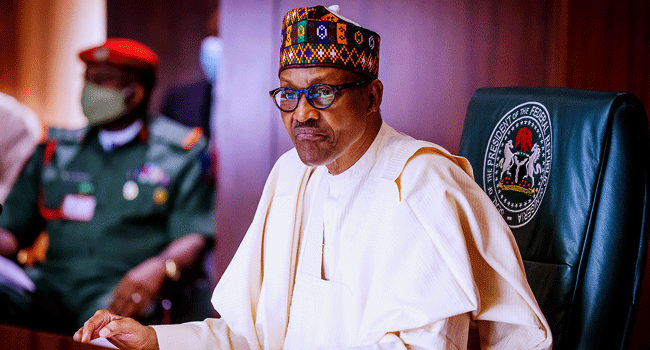President Muhammadu Buhari has transmitted the Finance Bill 2020 to the National Assembly for consideration and passage into law.
In a letter to the Speaker of the House of Representatives, Femi Gbajabiamila and which was read on the floor of the House, Buhari said the Bill is intended to support the 2021 budget.
The letter reads: “Pursuant to Sections 58 and 59 of the Constitution of the Federal Republic of Nigeria, 1999 (as amended). I formally request that the Finance Bill, be considered by the House of Representatives, for passage into law.
“The Finance Bill, 2020 seeks to support the implementation of the 2021 Budget by proposing key reforms to specific taxation, customs, excise, fiscal and other laws.”
READ ALSO: ASUU Strike: Union Consulting Members, Stakeholders On Government Offer
Buhari said the Bill’s provisions seeks to “Adopt appropriate counter-cyclical fiscal policies to respond to the economic and revenue challenges precipitated by the decline in international oil prices, as well as the impact of the COVID-19 Pandemic on the Nigerian economy,
“Reform extant fiscal policies to prioritise job creation, economic growth socio-economic development, domestic revenue mobilisation, as well as to foster closer coordination with monetary and trade policies;
“Provide fiscal relief for taxpayers by reducing the applicable minimum tax rate for two (2) consecutive years of assessment, as well as reforming the commencement and cessation rules for small businesses
“Propose measures to fund the Federal Government’s COVID-19 Pandemic response and introduce provisions to enhance the recovery of corporate donations towards responses to the COVID 19 pandemic, as well as any similar crises in the future.
READ ALSO: Boko Haram: Shekau Justifies Killing Of Rice Farmers
“Amend certain aspects of the Fiscal Responsibility Act, to align this Act with the 1999 Constitution (as amended), as well as to enhance fiscal efficiencies by controlling the cost-to-revenue ratios of key State and Government-Owned Enterprises.”
The bill will also “Amend the Public Procurement Act to implement key procurement reforms previously proposed by the National Assembly, in 2019. to extend the scope of the Act to the Federal Judiciary and Legislature, accelerate procurement processes, increase mobilisation fee thresholds and provide for essential e- procurement reforms.”












